Peaceworks
Publications
Articles, publications, books, tools and multimedia features from the U.S. Institute of Peace provide the latest news, analysis, research findings, practitioner guides and reports, all related to the conflict zones and issues that are at the center of the Institute’s work to prevent and reduce violent conflict.
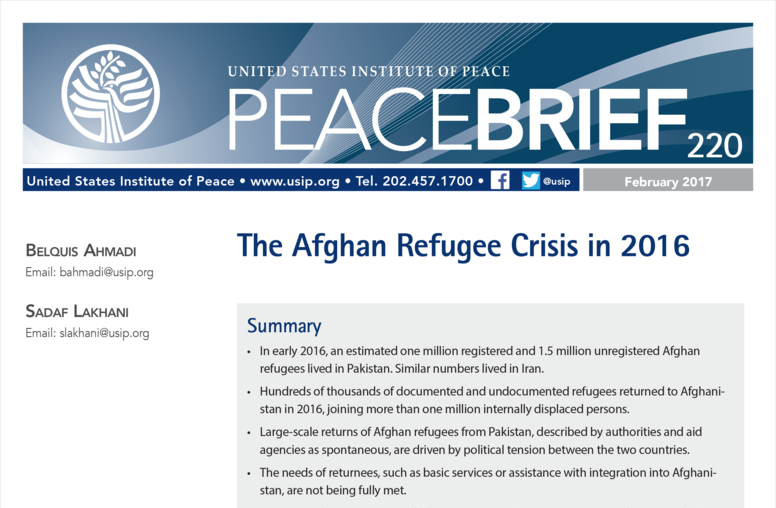
The Afghan Refugee Crisis in 2016
Hundreds of thousands of documented and undocumented refugees returned to Afghanistan in 2016, joining more than one million internally displaced within the country. International agencies warn of a humanitarian crisis that would affect hundreds of thousands of people as returnees struggle to meet basic needs. This Peace Brief provides an overview of the situation at the end of 2016, focusing on those returning from Pakistan, the humanitarian situation, and the security implications of the influx.
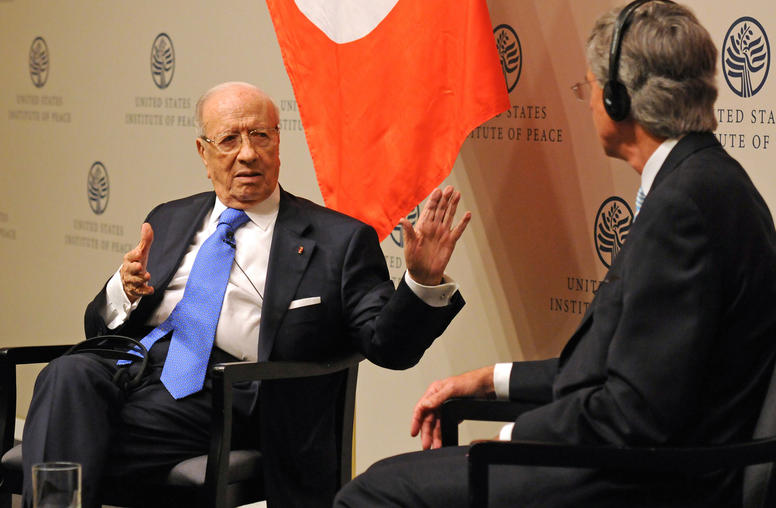
Violent Extremism: Muslim Democrats as Part of Solution
The White House account of President Donald Trump’s first phone call with Tunisian President Beji Caid Essebsi is a good sign that the U.S. might continue to work cooperatively with moderate Muslim political leaders who can contribute to global stability and aid in reducing violent extremism.
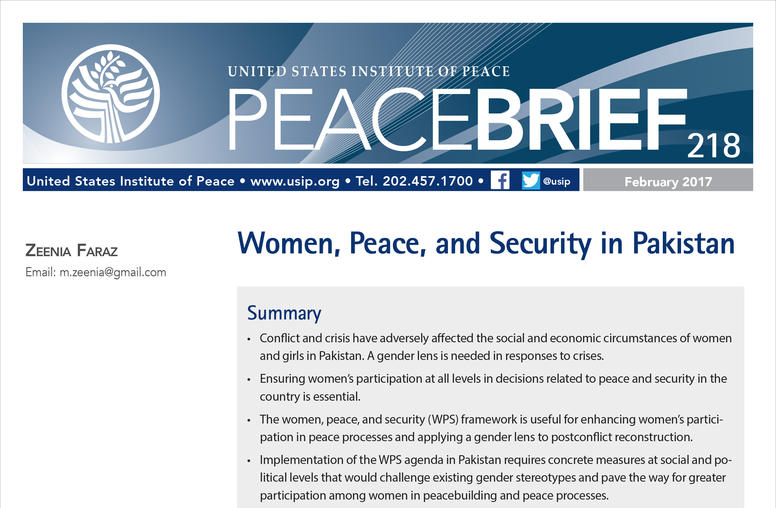
Women, Peace, and Security in Pakistan
A society defined by patriarchal norms and structural inequalities keeps women and girls on the margins of the society and hinders women’s participation in public and political spheres. Yet women’s participation in decisions related to peace and security in the country is essential to peacebuilding and postconflict reconstruction. This brief examines the challenges in implementing the women, peace, and security framework in Pakistan.
Pakistani Party Chief Voices Concerns Over Entry Curbs
“I do hope that this issue is sorted out very soon, because it is sending the wrong message and it’s shrinking the space for those of us out there fighting Islamic extremism on the front lines,” he told an audience of policy specialists, civil society leaders and others, in an event co-sponsored by the Heritage Foundation. Bhutto Zardari, the son of former Prime Minister Benazir Bhutto, is chairman of the Pakistan Peoples Party, the largest opposition party in parliament.
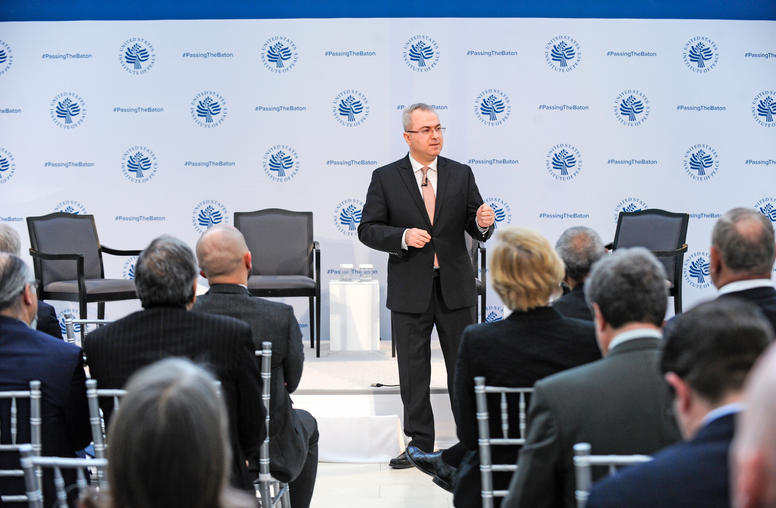
Cooling Iraq’s Conflict With Community Dialogue
The violence of extremists—and the chaos they spawn—takes place in towns, villages, streets and homes, not along some far-off front line. That’s where extremist groups seek recruits and where residents they victimize plot revenge, said the U.S. Institute of Peace’s Sarhang Hamasaeed in a Ted Talk-style presentation during the Jan. 10 “Passing the Baton” conference. While national and international efforts to bring peace to such areas can help, dialogue and mediation at the community level has...
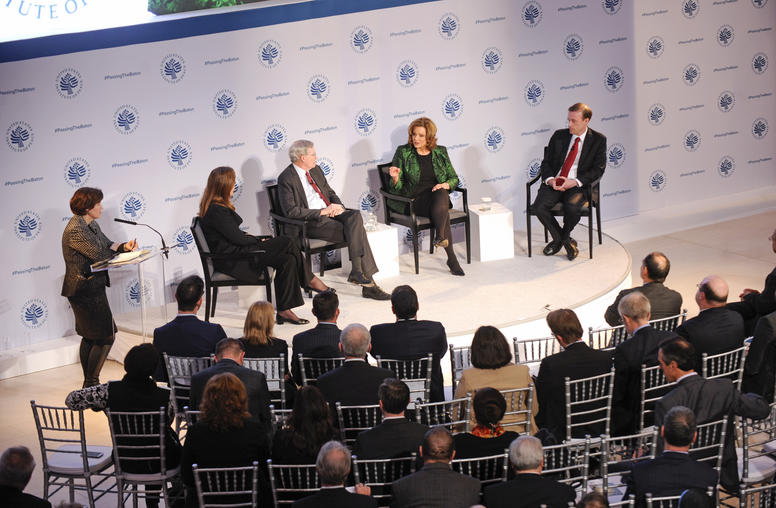
Trump & Obama Aides, Experts Weigh America’s Global Role
Seven weeks past an election that stirred talk of U.S. isolationism, national security aides from the incoming, outgoing and previous administrations held private discussions January 9 that found a broad point of consensus: The United States must lead more, not less, in the world. The meetings, among more than 80 past, present and future officials and independent foreign policy analysts, opened a bi-partisan conference on national security issues convened by the U.S. Institute of Peace (USIP)...
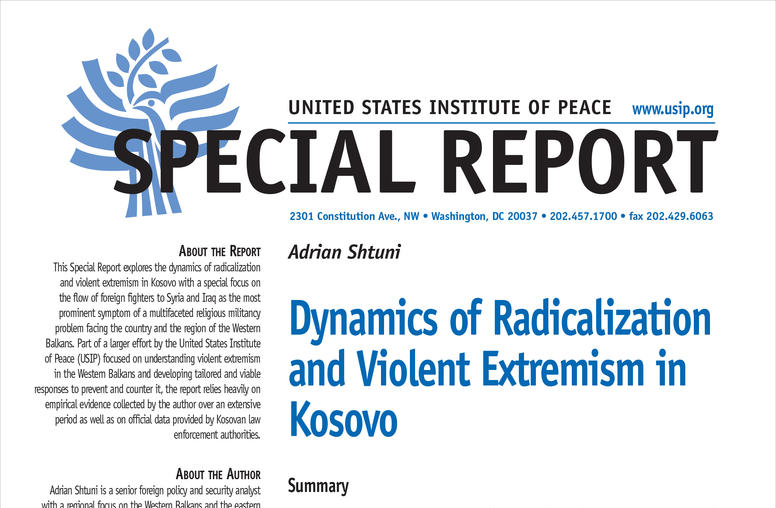
Dynamics of Radicalization and Violent Extremism in Kosovo
Relying in large part on primary empirical evidence, this report explores the dynamics of violent extremism in Kosovo and the disproportionately high number of radicalized fighters from the region in Syria and Iraq. Examining the historic, cultural, geopolitical, and socioeconomic factors behind the phenomenon, it focuses on the flow as a symptom of a larger religious militancy problem within the country and offers recommendations on countering that challenge.
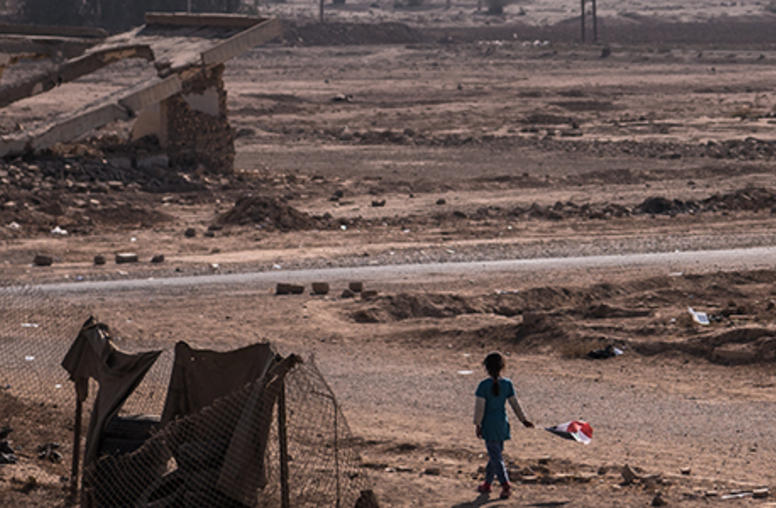
From ISIS to Al-Qaida: The Changing Extremist Threat
The Islamic State may be crumbling across Iraq, but the future prospects of violent extremist groups are far from fading. While ISIS rampaged across Iraq and Syria in 2014, setting up a terror-based regime to impose its will, a revitalized al-Qaida was taking a different, more sustainable approach by grafting itself onto local extremist groups, experts said in a forum at the U.S. Institute of Peace that also examined community approaches to preventing and countering violent extremism. Al-Qaid...
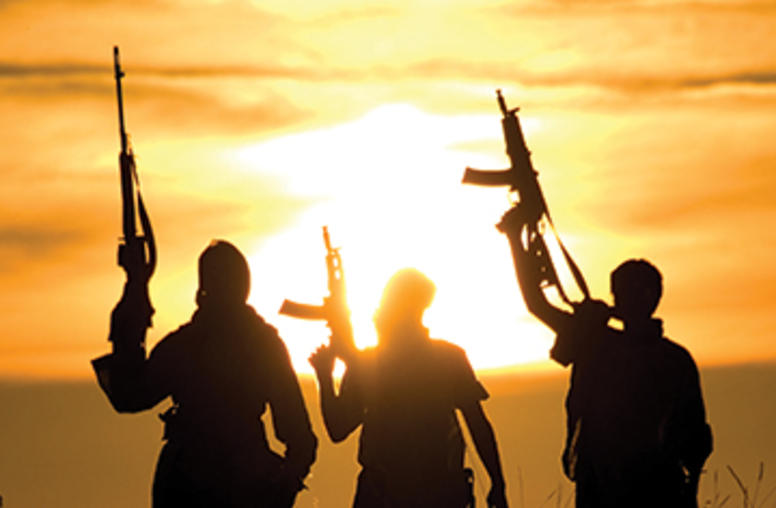
The Jihadi Threat: ISIS, Al Qaeda and Beyond
The West failed to predict the emergence of al-Qaeda in new forms across the Middle East and North Africa. It was blindsided by the ISIS sweep across Syria and Iraq, which at least temporarily changed the map of the Middle East. Both movements have skillfully continued to evolve and proliferate — and surprise. What’s next? Twenty experts from think tanks and universities across the United States explore the world’s deadliest movements, their strategies, the future scenarios, and policy con...
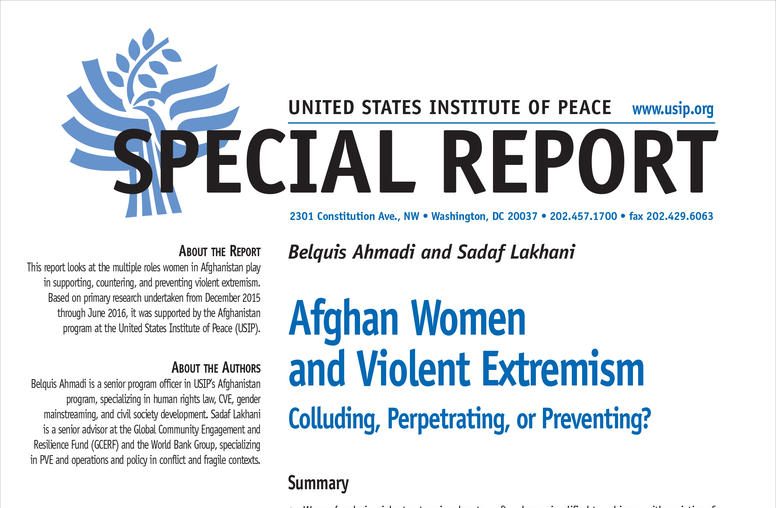
Afghan Women and Violent Extremism
In Afghanistan, the actions and narratives of violent extremist groups threaten to roll back many of the gains and hard-won rights of women over the last fifteen years. Women have long been cast in a binary light—as either disempowered victims or deviant anomalies—but in fact are involved in a wide range of activities, from peacebuilding to recruiting, sympathizing, perpetrating, and preventing violent extremism. Drawing on more than one hundred interviews in the field in Afghanistan, this re...